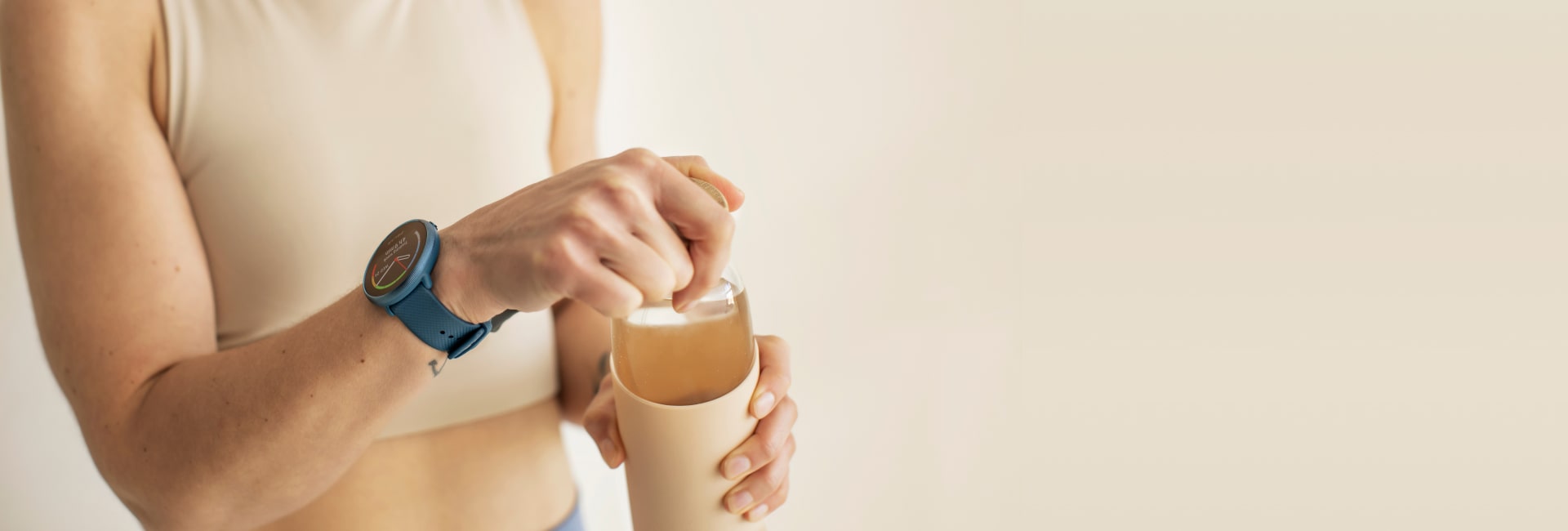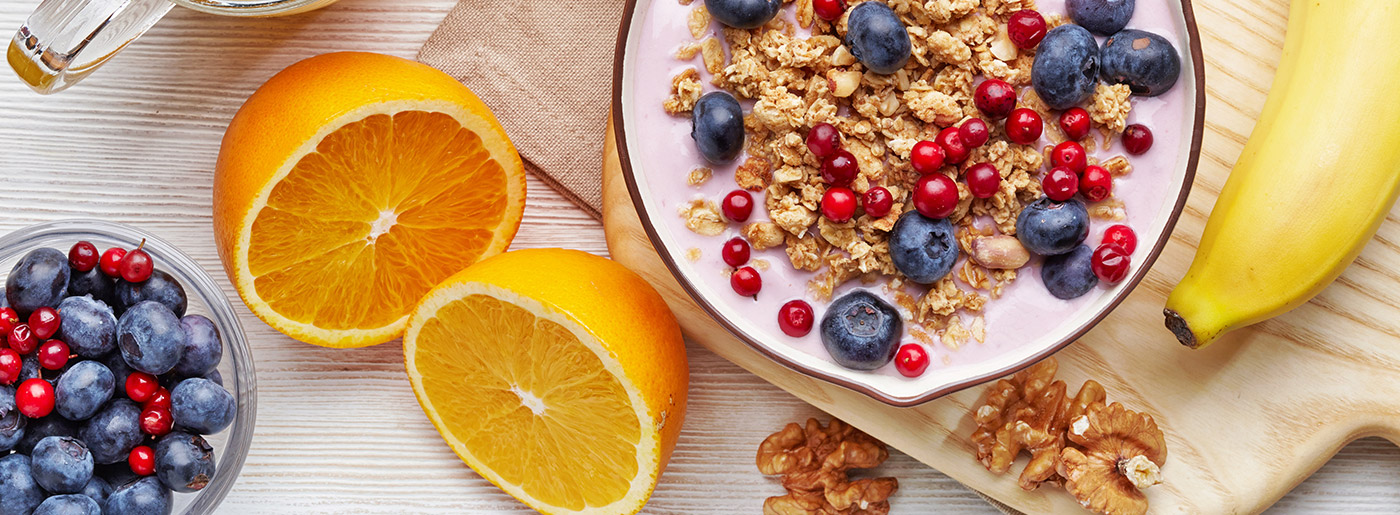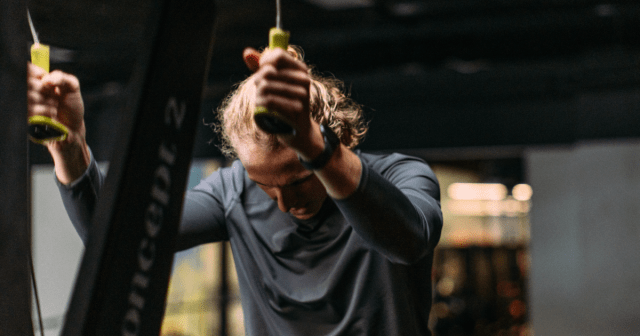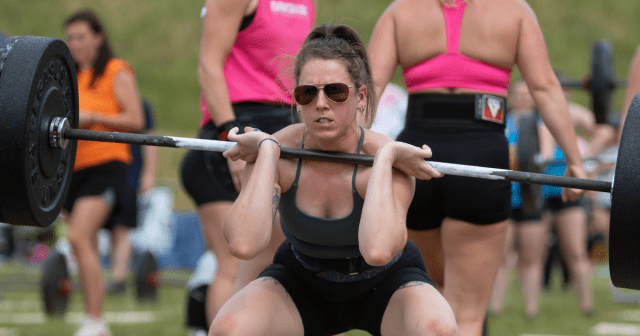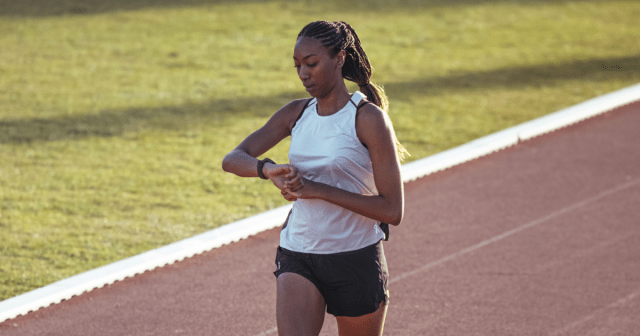When it comes to getting optimal results from your training, what you eat when working out can be a major contributor to your success.
You probably already know that proper nutrition before and after a workout is key to maximizing athletic performance, but fueling adequately during long or particularly grueling sessions also helps to improve recovery and performance factors. These include:
- Reducing overall inflammation and muscle soreness post-training
- Thermoregulation
- Preservation of muscle mass over the long term
- Improved immune function
- Reducing fatigue
So where do you start?
What to eat during a workout
Hydration should be your first priority, especially if your workouts last two or more hours or are very intense. Regulating body temperature is critical to being able to last and perform during a long session and is something endurance athletes, in particular, must keep in mind.
Hydration needs vary between men and women and depend on a variety of factors. These include whether you maintain adequate hydration throughout the day or week, plus the temperature and altitude of your training environment.
The hotter the temperature and the higher the altitude, the more hydration you require.
As a general rule of thumb, the hotter the temperature and the higher the altitude, the more hydration you require. Make sure you’re not just drinking water; you need electrolytes too. A good baseline intake per hour is 500-750ml of water with dissolved electrolytes.
Carbohydrates are next on the list during a long or grueling training session. In these cases, you want an immediate source of fuel, not something your body has to work hard to break down.
Generally speaking, these are quick carbs that won’t give you much GI distress. Think glucose in pretty pure forms. The baseline recommendation is 30-70g of carbs per hour. Start at the low end and adjust up or down from there.
Protein is a final consideration to make and intake should be based on your goals. For the endurance athlete doing long sessions, protein during exercise can help preserve muscle mass. For the advanced athlete looking to gain muscle mass, it can be a great way to increase protein synthesis.
However, for the recreational athlete training less than an hour at a time, protein intake during a workout might not be as critical. For those who need it, 15g of protein per hour of a workout is a good general guideline to start with. Adjust up or down from there depending on your individual needs.
Is it necessary to refuel during long workouts?
If you spend less than an hour working out per day, chances are you will do just fine without intra-workout nutrition. For individuals in this category, which includes most recreational athletes, results can be optimized by focusing on nutritional needs before and after workouts instead. The composition of your meals throughout the week is likely going to play a larger role in your performance than focusing on the one-hour daily window of your workout.
Every workout is an opportunity to hone in on the exact nutrition that will help you perform your best on game day.
For endurance athletes or those doing multiple training sessions per day, fueling during a workout is important for both performance and recovery. And that goes not just for competition or race day, it should be a staple of the daily training program as well.
Think of it this way: every workout is an opportunity to hone in on the exact nutrition that will help you perform your best on game day. Take each one as a practice session and fine-tune your nutritional intake accordingly.
How much energy do you need for your workout?
The goal of fueling during a workout is to maintain a consistent level of blood sugar; if it dips too low, you run the risk of hitting the infamous runner’s wall.
Unfortunately, there can be no exact one-size-fits-all when it comes to perfect workout nutrition. But using this formula and your own data, you can approximate what will work best for you.
During high-intensity training sessions lasting over an hour, days with multiple sessions, or moderate-intensity workouts over two hours, aim to consume the following every hour of a workout:
- 500-750ml water
- Electrolytes (sodium and potassium)
- 30-45g carbohydrates
- 15g protein
Some tips:
- Start on the low end of recommendations and adjust carbs and hydration up or down depending on your needs.
- Try different food or supplements and see what works best for your body to prevent GI distress.
- Don’t leave it to competition day! Practice refueling during training sessions.
- Use personal training data to tailor your intra-workout nutrition. Features like the Polar FuelWise™ assistant can give you helpful intake suggestions and reminders.
How do you time refueling?
Remember the runner’s wall? Well, the best way to avoid it is to focus on fueling before you hit it, not after. You should aim to consume your carbs, protein, water, and electrolytes slowly over each hour as opposed to all at once to keep a consistent blood sugar level and hydration status.
Eating too much too fast can draw a lot of water into your digestive system.
The second benefit of slow intake is reducing the risk of GI distress that could cost you a race or even sideline you. Eating too much too fast can draw a lot of water into your digestive system. Save your focus and energy for performing well, not running to the bathroom.
Does nutritional intake before training matter?

While fueling properly during a workout can be beneficial, an athlete’s overall nutrition throughout the week plays a critical role in maximizing recovery and performance. Take into account your entire diet and ensure that it’s on-point before making changes to intra-workout food and supplements.
For day-to-day meals, concentrate on slow-digesting carbohydrates like whole grains, beans and legumes, fruits, and starchy tubers in order to keep your glycogen stores high. Ensure that you stay hydrated as well, keeping up on water and sodium intake throughout the day.
When it comes to pre-workout meals, try to eat one to two hours before a training session to make sure you’ve had time to digest.
When it comes to pre-workout meals, try to eat one to two hours before a training session to make sure you’ve had time to digest. Focusing on quality carbohydrates and proteins is a good idea, but don’t sweat the exact timing too much, especially if your goal is general health and fitness.
Don’t neglect adequate hydration either. Go into your training session confident that you’ve set yourself up for success.
What should you consume during a long workout?
We touched a bit on the fuel requirements for longer or more intense workouts, but when it comes to specific foods, personal data can help you hone in on the optimal nutrition choices for you.
Use a training log to record what works and what doesn’t. You can opt for supplements or whole foods during your workouts, just keep in mind that for some athletes (particularly females), supplements in liquid form and high in fructose can intensify the risk of GI distress.
What to Eat When Working Out: Nutrition and Hydration Suggestions
Whole Food Options
- Eat-to-digest fruits like bananas
- Dried fruits like raisins
- Soaked quick or minute oats
- A blended protein smoothie with fruit
- White bread sandwich with jam and/or peanut butter
Nutritional Supplement Options
- Maltodextrin
- Dextrose
- Other high-quality carbohydrate powders
Hydration Options
- 500-750ml of water with 1tsp maple syrup and a pinch of salt
- 500-750ml of water with a high-quality electrolyte supplement (containing potassium and sodium)
Summary
- Refueling during a long workout can help you maximize performance and recovery, including improved immune function, preservation of muscle, and reduction of fatigue.
- Refueling is about maintaining both adequate nutrition and hydration.
- When considering intra-workout fueling, take into account your personal goals and training structure.
- For endurance athletes and those training longer or more intense sessions, fuel intake per hour during a workout can be adjusted up and down from these baseline suggestions:
- 500-750ml water
- Electrolytes (sodium and potassium)
- 30-45g carbohydrates
- 15g protein
- Individual needs vary. Use personal data to optimize your workout nutrition. Features like the Polar FuelWise can help you set and hit your targets.
If you liked this post, don’t forget to share so that others can find it, too.
Or give it a thumbs up!
I like this article
Please note that the information provided in the Polar Blog articles cannot replace individual advice from health professionals. Please consult your physician before starting a new fitness program.
